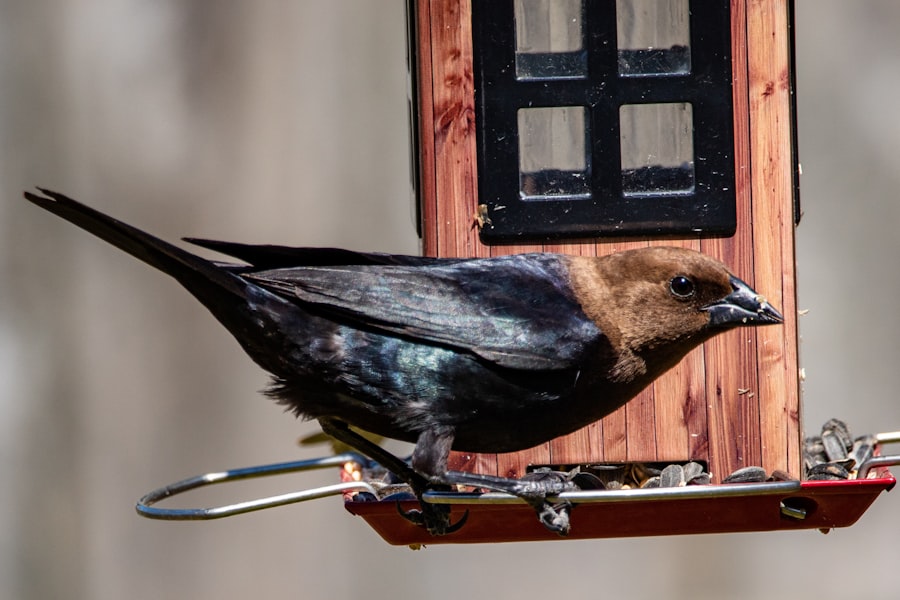Before keeping chickens, it is essential to understand local regulations and restrictions regarding poultry. Different municipalities have varying rules, including zoning laws that may prohibit chicken keeping or specify guidelines on the number of chickens allowed, coop requirements, and distance from neighboring properties. Thorough research of these regulations is necessary to ensure compliance and avoid legal issues.
Homeowner association rules or covenants may also impact chicken keeping. Some neighborhoods have specific restrictions on poultry, and awareness of these is crucial before making decisions. Consulting local authorities or animal control agencies is advisable to gain a comprehensive understanding of the rules governing poultry keeping.
This helps individuals avoid potential fines or penalties and ensures compliance with all applicable laws. By understanding and adhering to local regulations and restrictions, prospective chicken keepers can ensure a smooth and legal process for keeping chickens in their area.
Table of Contents
- 1 Determining available space and resources
- 2 Considering the purpose of keeping chickens
- 3 Evaluating the time and effort required for care
- 4 Assessing the impact on neighbors and community
- 5 Factoring in the cost of keeping chickens
- 6 Seeking advice from experienced chicken keepers
- 7 FAQs
- 7.1 How many chickens can you keep in your backyard?
- 7.2 What factors should be considered when determining how many chickens to keep?
- 7.3 Are there any legal restrictions on the number of chickens you can keep?
- 7.4 What are the benefits of keeping chickens in your backyard?
- 7.5 What are the challenges of keeping chickens in your backyard?
Key Takeaways
- Research and understand local regulations and restrictions before keeping chickens
- Determine the available space and resources for keeping chickens
- Consider the purpose of keeping chickens, whether for eggs, meat, or as pets
- Evaluate the time and effort required for the care of chickens
- Assess the impact on neighbors and community before keeping chickens
- Factor in the cost of keeping chickens, including housing, feed, and healthcare
- Seek advice from experienced chicken keepers before starting a chicken coop
Determining available space and resources
Determining the Feasibility of Keeping Chickens
Assessing Available Space
Once local regulations and restrictions have been understood, the next step is to determine the available space and resources for keeping chickens. Chickens require adequate space to roam, scratch, and forage, as well as a secure coop for shelter and nesting. It is essential to assess the available space in the backyard or property to ensure that it can accommodate the needs of the chickens.
Considering Resources and Infrastructure
In addition to space, it is crucial to consider the resources required for keeping chickens, such as feed, water, and bedding. Individuals should assess their ability to provide these resources on a consistent basis to ensure the health and well-being of the chickens. Furthermore, consideration should be given to the availability of veterinary care in the event of illness or injury.
Evaluating Property Infrastructure
Individuals should also evaluate the existing infrastructure on their property, such as fencing, predator protection, and coop construction. These factors will play a crucial role in determining the feasibility of keeping chickens and ensuring their safety and security.
By carefully assessing the available space and resources, prospective chicken keepers can make informed decisions about whether they have the capacity to provide for the needs of chickens.
Considering the purpose of keeping chickens

Another important factor to consider when contemplating keeping chickens is the purpose behind it. Some individuals may be interested in keeping chickens for fresh eggs, while others may be drawn to the idea of raising their own meat. Understanding the primary purpose of keeping chickens will influence decisions regarding breed selection, coop size, and overall care requirements.
For those interested in fresh eggs, considerations should be made regarding the number of eggs desired per week, as well as the specific egg-laying capabilities of different chicken breeds. Additionally, individuals interested in raising chickens for meat should research breeds that are well-suited for meat production and consider the ethical implications of raising animals for consumption. Furthermore, some individuals may be interested in keeping chickens for educational purposes, such as teaching children about animal care and responsibility.
In this case, considerations should be made regarding the temperament and handling of different chicken breeds, as well as opportunities for learning and engagement. By carefully considering the purpose behind keeping chickens, individuals can make informed decisions about breed selection, care requirements, and long-term goals for their poultry operation.
Evaluating the time and effort required for care
Keeping chickens requires a significant investment of time and effort to ensure their health and well-being. Individuals should carefully evaluate their ability to dedicate time to daily care tasks such as feeding, watering, cleaning, and monitoring the chickens. Additionally, considerations should be made regarding the time required for coop maintenance, egg collection, and potential veterinary care.
Furthermore, individuals should be prepared to invest time in learning about chicken behavior, health issues, and best practices for care. This may involve reading books, attending workshops, or seeking advice from experienced chicken keepers. By understanding the time and effort required for care, individuals can make informed decisions about whether they have the capacity to provide for the needs of chickens on a daily basis.
In addition, it is important to consider any potential lifestyle changes that may impact the ability to care for chickens. For example, individuals with frequent travel commitments or irregular work schedules may find it challenging to consistently provide care for chickens. By evaluating the time and effort required for care, prospective chicken keepers can make realistic assessments of their ability to commit to poultry keeping.
Assessing the impact on neighbors and community
Keeping chickens can have an impact on neighbors and the surrounding community, and it is important to consider these factors before embarking on poultry keeping. Individuals should assess how their neighbors may feel about having chickens nearby and whether there are any potential concerns or objections. Open communication with neighbors can help address any potential issues and ensure a harmonious relationship.
Furthermore, individuals should consider any noise or odor concerns that may arise from keeping chickens. Roosters, in particular, can be noisy and may cause disturbances for nearby residents. It is important to be mindful of these potential impacts and take steps to mitigate any negative effects on neighbors.
In addition, individuals should consider how their poultry operation may impact the broader community. This may include considerations regarding local wildlife, environmental impact, and potential outreach opportunities. By assessing the impact on neighbors and community, prospective chicken keepers can take proactive steps to address any concerns and ensure a positive relationship with those around them.
Factoring in the cost of keeping chickens

Initial and Ongoing Expenses
Keeping chickens comes with associated costs that should be carefully considered before making any decisions. Individuals should factor in expenses such as feed, bedding, coop construction or maintenance, veterinary care, and potential permits or licensing fees. Additionally, considerations should be made regarding ongoing costs for supplies and potential unexpected expenses.
Long-term Financial Commitment
Furthermore, individuals should assess their ability to financially support a poultry operation over the long term. This may involve creating a budget for ongoing expenses and considering how these costs will fit into existing financial commitments. By factoring in the cost of keeping chickens, prospective chicken keepers can make informed decisions about whether they have the financial means to support a poultry operation.
Cost-Saving Measures
In addition, individuals should consider potential cost-saving measures such as DIY coop construction or sourcing feed from local suppliers. By being mindful of costs and exploring ways to minimize expenses, individuals can ensure that they are prepared for the financial responsibilities of keeping chickens.
Seeking advice from experienced chicken keepers
Finally, it is highly beneficial for prospective chicken keepers to seek advice from experienced individuals who have firsthand knowledge of poultry keeping. This may involve reaching out to local chicken keepers or joining online forums and communities dedicated to poultry care. By seeking advice from experienced chicken keepers, individuals can gain valuable insights into best practices for care, breed selection, coop construction, and potential challenges.
In addition to seeking advice from experienced chicken keepers, individuals may also benefit from visiting local farms or attending workshops or classes on poultry care. These opportunities can provide hands-on experience and practical knowledge that can be invaluable for those new to chicken keeping. Furthermore, individuals should be open to learning from their own experiences and making adjustments based on feedback from experienced chicken keepers.
Poultry care is an ongoing learning process, and being receptive to advice from those with experience can help ensure success in keeping chickens. In conclusion, keeping chickens requires careful consideration of local regulations and restrictions, available space and resources, purpose behind poultry keeping, time and effort required for care, impact on neighbors and community, cost considerations, and seeking advice from experienced chicken keepers. By thoroughly evaluating these factors and making informed decisions, prospective chicken keepers can set themselves up for a successful and fulfilling experience in poultry keeping.
If you’re wondering how many chickens you can keep in your coop, you may want to check out this article on chicken coop designs in Grand Island, NE. It provides valuable information on the size and layout of a coop, which can help you determine the appropriate number of chickens for your space.
FAQs
How many chickens can you keep in your backyard?
In the United States, the general rule of thumb is to allow 2-4 square feet of space per chicken in a coop, and 8-10 square feet of space per chicken in a run. However, local regulations and ordinances may dictate specific limits on the number of chickens you can keep.
What factors should be considered when determining how many chickens to keep?
When determining how many chickens to keep, factors such as available space, local regulations, the purpose of keeping chickens (e.g. for eggs or meat), and the amount of time and resources available for care and maintenance should be considered.
Are there any legal restrictions on the number of chickens you can keep?
Local regulations and ordinances may dictate specific limits on the number of chickens you can keep in your backyard. It is important to check with your local government or homeowner’s association to ensure compliance with any legal restrictions.
What are the benefits of keeping chickens in your backyard?
Keeping chickens in your backyard can provide a sustainable source of fresh eggs, natural pest control, and fertilizer for your garden. Additionally, many people enjoy the companionship and entertainment that chickens can provide.
What are the challenges of keeping chickens in your backyard?
Some challenges of keeping chickens in your backyard include the time and effort required for daily care and maintenance, potential noise and odor issues, and the need to protect chickens from predators. It is important to consider these factors before deciding to keep chickens.

Meet Walter, the feathered-friend fanatic of Florida! Nestled in the sunshine state, Walter struts through life with his feathered companions, clucking his way to happiness. With a coop that’s fancier than a five-star hotel, he’s the Don Juan of the chicken world. When he’s not teaching his hens to do the cha-cha, you’ll find him in a heated debate with his prized rooster, Sir Clucks-a-Lot. Walter’s poultry passion is no yolk; he’s the sunny-side-up guy you never knew you needed in your flock of friends!


Meet Walter, the feathered-friend fanatic of Florida! Nestled in the sunshine state, Walter struts through life with his feathered companions, clucking his way to happiness. With a coop that’s fancier than a five-star hotel, he’s the Don Juan of the chicken world. When he’s not teaching his hens to do the cha-cha, you’ll find him in a heated debate with his prized rooster, Sir Clucks-a-Lot. Walter’s poultry passion is no yolk; he’s the sunny-side-up guy you never knew you needed in your flock of friends!







